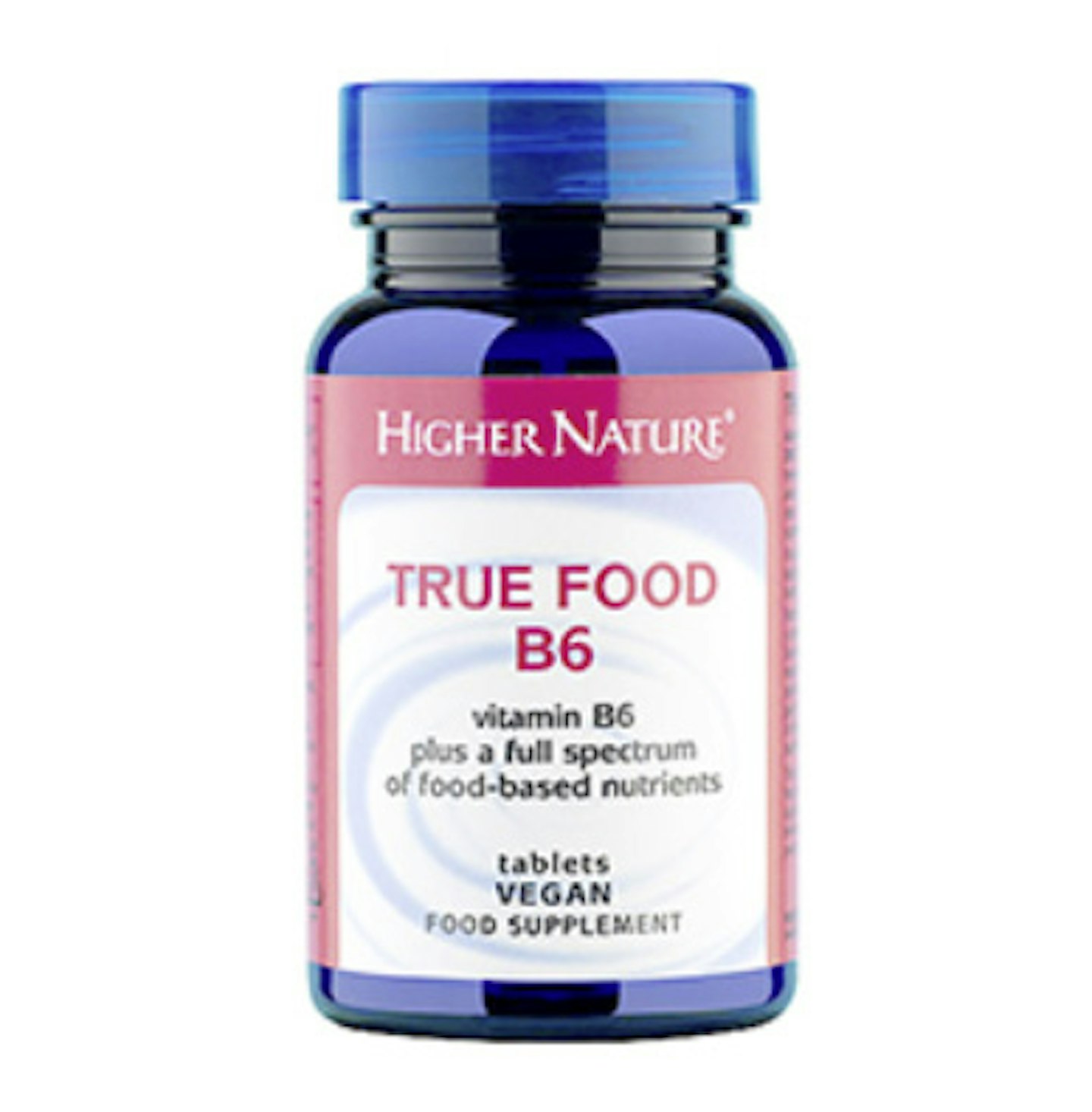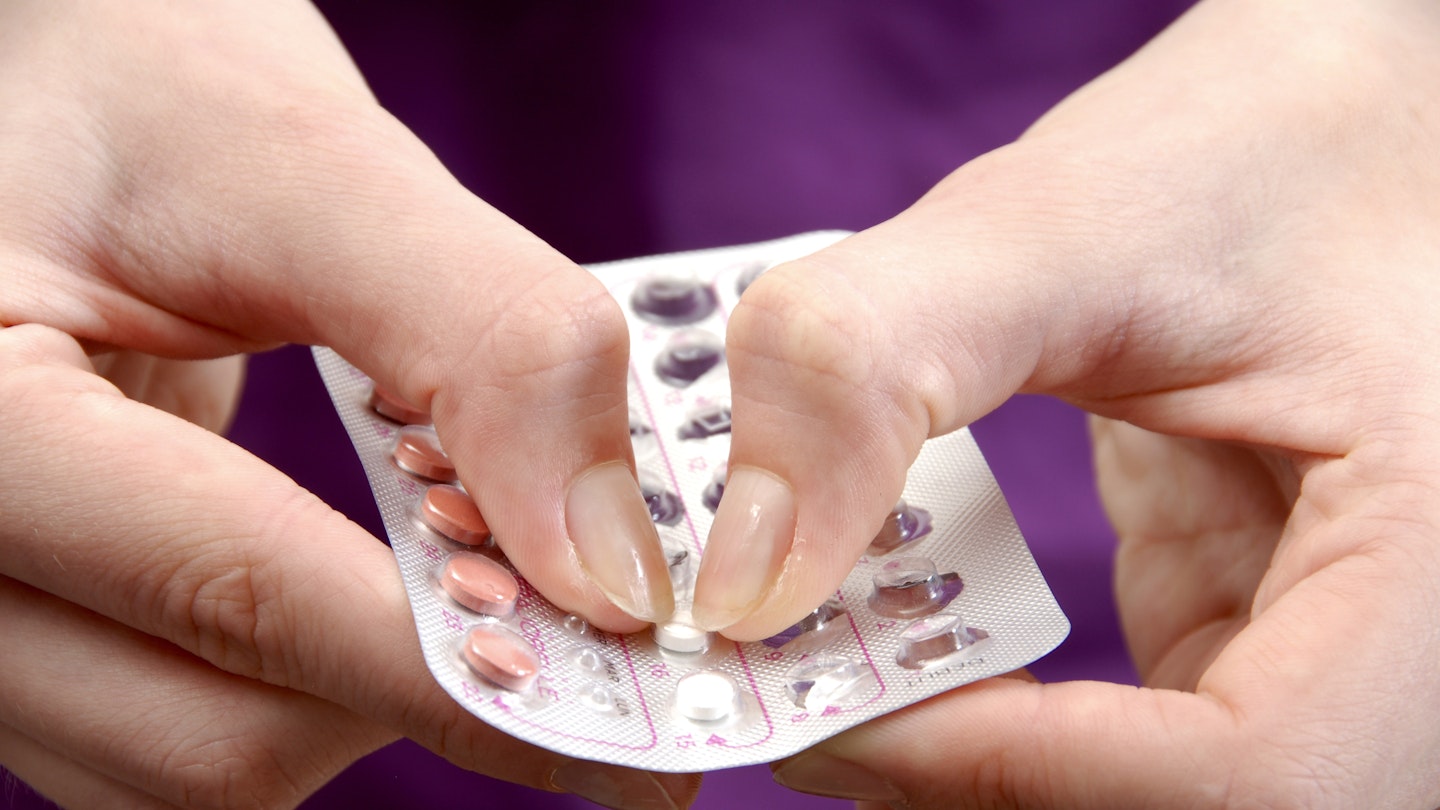Since its launch in 1961, the contraceptive pill has undeniably revolutionised women's lives; allowing us to become sexually liberated, regulate our periods and - with a more than 99 percent success rate when taken correctly - avoid unwanted pregnancies. By introducing synthetic hormones - usually oestrogen and/or progesterone into the body, the Pill works by fooling the reproductive system into thinking its already pregnant. With many formulas out there, it is well tolerated by most.
Do you have a bit on the side?
Despite being wildly popular, for some, the Pill is linked to side effects - from acne to weight gain, headaches and mood swings. Many of these symptoms creep up over months or years. Moreover, recent medical studies have drawn correlations between use of the oral contraceptive Pill and depression, not to mention a decreased sex drive and an increased risk of breast cancer in some women.
And it's this recent glut of studies that is causing many of us to question our relationship with the Pill. Julia Bailey, 31, from Southampton, has been on it since she was 18. 'I've been on Microgynon for nearly 15 years,' she says. 'It's worked well for me and I've only ever had breaks of a few months when I have been out of relationships. That said, I wouldn't know what my regular menstrual cycle is now, which worries me, and I'm concerned about weight gain and potentially skin issues if I came off it. Ideally, I'd take a more natural approach and be hormonal-free, but I am rather fearful of what may happen when I walk away.'
And it's not just women. After reading about links between the Pill and depression, Olivia Clark, 30, from Tunbridge Wells, says her boyfriend urged her to come off it. 'He said he wouldn't want me feeling like that and that we'd fine some other method of birth control,' she says.
The good, the bad and the other options...
'The Pill is a long-standing, reliable contraception,' says GP Dr Jane Leonard (drjaneleonard.co.uk). ‘But there are many,newer options out there that don’t require patient input – you don’t have to take them or put them on,’ she says. ‘That said, there remains a tendency for GPs to put women straight on the Pill. Largely, I think, because of lack of awareness and an apprehension of trying new things.’
Jessica Joyce, 33, from Stafford gave up oral contraceptives last year after suffering with problem skin and low moods. ‘As well as the physical and emotional issues I had with the Pill I always struggled to remember to take it. Now I have the Mirena coil – it’s an IUD that still contains hormones but at a much lower dose. I wanted to avoid an unplanned pregnancy and haven’t had any problems with it.’ Long Acting Reversible Contraceptive (LARC’s) are recommended for women like Jessica who often find themselves missing a Pill but do not want to become pregnant. Dr. Leonard says IUDs (coils), devices such as the NuvaRing or implants don’t have to be thought about once they’re in, but, importantly, ‘You can remove them at any time if you want a baby or experience side effects,’ she says.
But still, many women struggle to break away from the Pill, nervous about the results and various horror stories from their contemporaries. Indeed, dermatologist Dr. Nick Lowe says he sees ‘increasing numbers of women experiencing spots for the first time in their thirties and the thing they often have in common is they were on oral contraceptives in their late teens and twenties'. Dr. Lowe says it’s since been discovered that these contraceptives can ‘hold back’ acne, only for it to surface later on.
All this considered, how can you actually achieve a dignified break-up from the Pill?
Visit a gynecologist or family planning centre
Women can be fertile a matter of days after giving coming off the Pill. Unless you want to have a baby, it is key to either abstain from sex or have alternative birth control ready. Multiple apps and tech solutions like The Natural Cycles app now promise to help you understand your cycle and effectively plan when or if to become pregnant. But the NHS advises that one woman in every 100 will get pregnant in a year when using natural family planning correctly, and factors such as stress, illness, travel and lifestyle can make fertility indicators harder to interpret.
Get help regulating your menstrual cycle
'Taking the Pill for many years means the body can almost forget what it was designed to do,' says acupuncturist Ross Barr (rossbar,com). 'I have seen clients who have stopped taking hormonal contraception and are disappointed to discover their periods don't return as expected after being on the Pill for so long. Acupuncture is widely used to regulate the menstrual cycle, since it helps organs return to their original hormonal state and promotes blood flow, blood production and the secretion of fluids. As a result, it helps the body find its original rhythm, simultaneously addressing any original imbalances or reasons why many women go on the Pill in the first place - think heavy periods, acne or PCOS, for example.'
Get to the root of the problem
If you started taking the Pill to remedy hormonal imbalances or an irregular cycle, try a natural solution to address the issue when you come off it. Pharmacist and co-founder of Victoria Health Shabir Daya specialises in natural remedies and recommends taking agnus castus, ‘aherb often referred to as a hormonal balancer, to restore a normal menstrual cycle. Best effects can take time and so it is advised to take this herb over a few months. Macaroot is also highly nourishing and may balance hormones,’ he says. Shabir also recommends Dong Quai, ‘one of the most commonly used female hormonal tonics worldwide. It is thought to strengthen the uterus, promotes blood flow to the uterine region and is often used as a fertility tonic.’

Reassess your diet
‘Know what you want to achieve before coming off the Pill,’ says Kamilla Schaffner clinical nutritionist and founder of mylondonnutritionist.com. ‘Do you want toget rid of synthetic hormones, fix your weight, have a baby? ‘Synthetic hormones deplete your body’s levels of vitamin B. Vitamins B1, B3 and carnitine affect the metabolism and can regulate weight gain. This group of vitamins also look out for your mental health - B6 and B12 work with the brain and support emotional health, likewise choline. I recommend anyone on the pill takes these in supplement form and also via diet by eating eggs, avocado, beans, chickpeas, sourdough bread andgreen leafy vegetables.’ Schaffner also recommends high quality zinc and magnesium supplements to help with fertility, stress management, sleep and the skin.
Foodscience of Vermont Magnesium+, £12.99 from Victoria Health

Up your fibre
Synthetic hormones can build up in the tissues of the body and upping your fibre intake can combat this says Schaffner. ‘This will remove excess oestrogens and toxins from the body…Include apples, pears, carrots, cabbage, broccoli, simple brown rice daily. Opening your bowels regularly means oestrogen can exit your body, too.’
Coming off the pill to have a baby?
Schaffner also recommends you prepare your body for a year or two before having a baby by supplementing the diet with B9, folate and B6. ‘Coffee and alcohol leach these vitamins,’ she cautions, ‘as the B-vitamin group is water-soluble. Make sure you're not encouraging quicker depletion by over consumption of caffeine and alcohol.’
Higher Nature True Food Vitamin B6 Food State Nutrition, £10.90 from Victoria Health

READ MORE: Campaigners Call For The Morning After Pill To Be Made More Affordable
